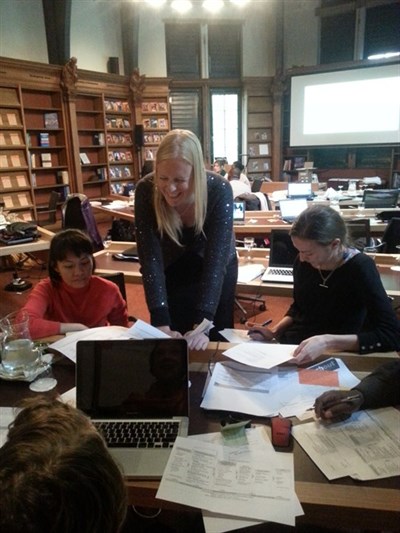 Maryse Kok, 25 November 2013
Maryse Kok, 25 November 2013
From 9-13 November 2013, the Third Global Forum on Human Resources for Health was held in Recife, Brazil. The event theme was Human Resources for Health: foundation for Universal Health Coverage and the post-2015 development agenda. The Global Health Workforce Alliance (GHWA) organised the Forum under the patronage of the Government of Brazil, the World Health Organization (WHO) and the Pan American Health Organization (PAHO). I was lucky enough to attend the meeting on behalf of REACHOUT and the Royal Tropical Institute (KIT).
The Global Forum was well attended with more than 2,000 participants. The side sessions were informative and relevant for researchers. The plenary sessions were more policy-oriented. A Political Declaration on Human Resources for Health was developed.
On Saturday November 9th, KIT was involved in a side session organized by the GHWA, USAID, NORAD and the Frontline Health Workers Coalition.In the session, stakeholders from all levels and perspectives shared country experiences and discussed the Community Health Worker (CHW) Harmonisation and Accountability Frameworks as well as priorities for a global research agenda on CHWs developed in advance of the meeting. KIT contributed to the paper on knowledge gaps and a need based global research agenda on CHWs.
From this session, a commitment document on CHWs and other Front Line Health Workers was developed. This aims to move us from fragmentation to synergy to achieve universal health coverage. KIT is part of a core group, coordinated by the GHWA, and REACHOUT will have a role in further initiatives, by contributing new evidence on close-to-community health programmes.
On Tuesday November 12th, KIT presented the emerging findings of a cost-effectiveness study on CHW programmes in low- and middle-income countries that was conducted together with Queen Margaret University of Edinburgh and Liverpool School of Tropical Medicine. The study is financed by the GHWA and will be published in the beginning of 2014. It consists of a literature review and the development of a generalised model to assess cost-effectiveness of CHW programmes in three REACHOUT countries (Indonesia, Ethiopia and Kenya).

This project is funded by the European Union.
